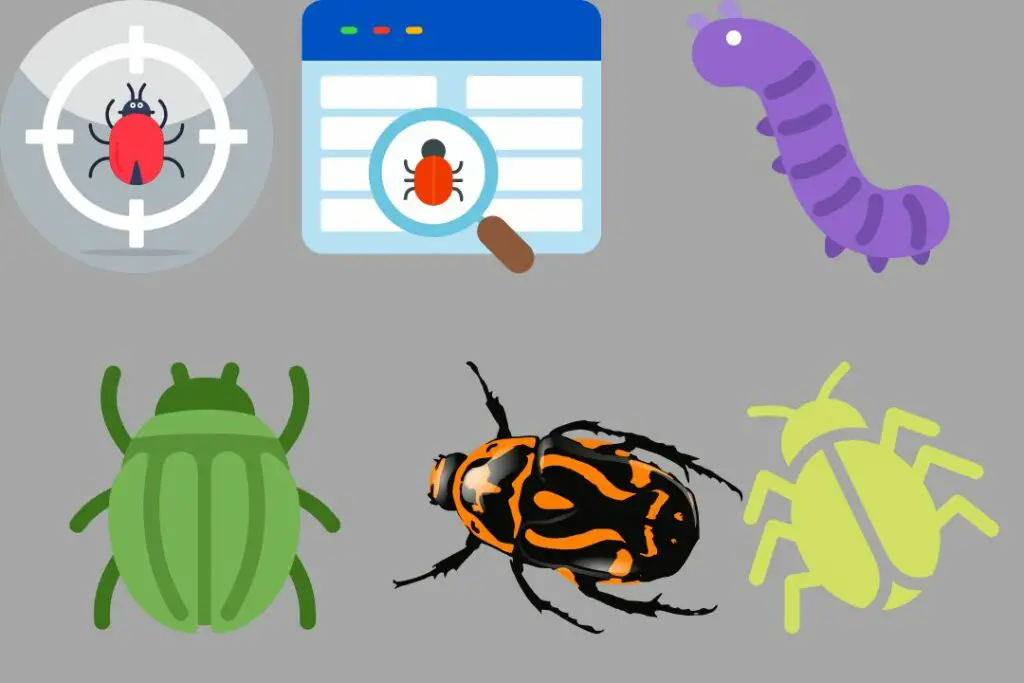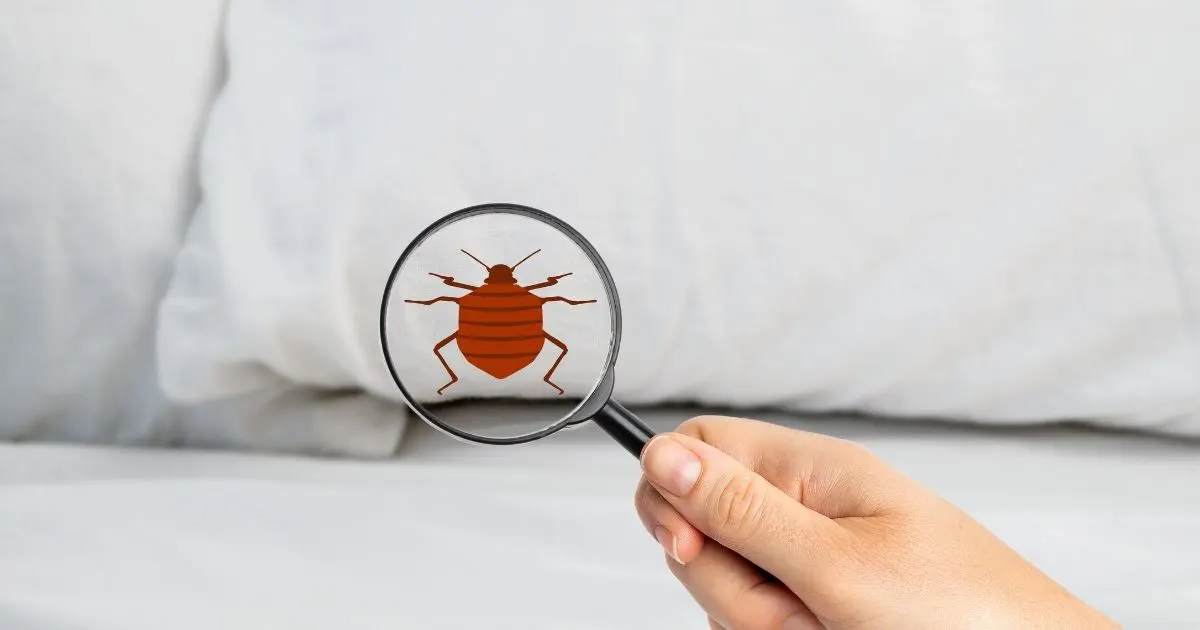Deet, also known as N,N-Diethyl-meta-toluamide, is a common ingredient found in many insect repellents.
It is known to be effective against mosquitoes, ticks, and other pests. However,
Does Deet Kill Bed Bugs?
Bed bugs are small, reddish-brown insects that feed on the blood of humans and animals. They are notoriously difficult to get rid of and can cause significant discomfort and distress. Many people wonder if Deet can be used to kill bed bugs, but the answer is not straightforward. While Deet can repel bed bugs, it is not a reliable method for eliminating an infestation.
Research has shown that Deet can be effective in preventing bed bug bites. However, it does not kill the bugs themselves.
In fact, bed bugs are becoming increasingly resistant to insecticides, including those containing Deet.
Therefore, while Deet may be helpful in preventing bites, it should not be relied upon as a sole method of bed bug control.
What is DEET?
DEET, or N,N-diethyl-meta-toluamide, is a chemical compound that is commonly used as an insect repellent.
It was first developed by the United States Army in 1946 for use by military personnel in insect-infested areas.
Since then, it has become widely used by the general public for protection against mosquitoes, ticks, and other biting insects.
DEET is available in a variety of formulations, including sprays, lotions, and wipes.
It works by blocking the receptors in insects that detect the presence of carbon dioxide and lactic acid, which are chemicals that are produced by humans and other mammals.
This makes it more difficult for insects to locate and bite their human hosts.
DEET is generally considered safe for use on human skin when used as directed.
However, it can cause skin irritation in some people, particularly those with sensitive skin.
It can also damage certain types of plastics, synthetic fabrics, and other materials.
DEET is effective against a wide range of insects, including mosquitoes, ticks, and fleas.
However, it is not effective against bed bugs. Bed bugs are not deterred by DEET, and it does not kill them.
Therefore, it is not recommended as a treatment for bed bug infestations.
Can DEET Kill Bed Bugs?
How DEET Affects Bed Bugs
DEET, or N,N-diethyl-meta-toluamide, is a common insect repellent that is used to keep mosquitoes, ticks, and other biting insects at bay.
However, it is not typically used to kill bed bugs. DEET works by disrupting the bed bug’s ability to detect human odors, making it less likely that they will bite.
Effectiveness of DEET on Bed Bugs
While DEET may be effective at repelling bed bugs, it is not a reliable method for killing them.
Bed bugs are very resilient and can survive for long periods of time without feeding.
They are also resistant to many insecticides, including those containing DEET.
In fact, some studies have shown that bed bugs may even be attracted to the scent of DEET, making it counterproductive as a repellent.
There are other insecticides that have been proven to be more effective at killing bed bugs, such as pyrethroids and neonicotinoids.
These insecticides work by disrupting the bed bug’s nervous system, causing paralysis and death.
However, it is important to note that even these insecticides may not be 100% effective at eliminating bed bug infestations.
In conclusion, while DEET may be helpful in preventing bed bug bites, it is not a reliable method for killing bed bugs.
If you suspect that you have a bed bug infestation, it is best to consult with a pest control professional to determine the most effective treatment options.

The Truth About Using DEET as a Bed Bug Repellent:
DEET, or N,N-diethyl-meta-toluamide, is a common active ingredient found in many insect repellents.
It is effective at repelling mosquitoes, ticks, and other biting insects, but its effectiveness against bed bugs is not as clear-cut.
While DEET can repel bed bugs, it is not a reliable or effective method for preventing bed bug bites.
Bed bugs are attracted to the carbon dioxide we exhale, as well as our body heat and scent. They are also able to detect the chemicals in DEET, and may still bite if they are hungry enough.
In addition, DEET is not designed for use on bedding or clothing, as it can be absorbed through the skin and cause irritation or other adverse effects.
It is also not recommended for use on infants or young children, as they may be more susceptible to the negative effects of the chemical.
Overall, while DEET may provide some temporary relief from bed bugs, it is not a reliable or safe method for preventing bed bug bites.
The best way to prevent bed bugs is through regular cleaning and inspection of bedding, clothing, and other areas where bed bugs may hide.
If an infestation is suspected, it is important to contact a professional exterminator to properly treat the area.
What instantly kills bed bugs?
There are several methods that can instantly kill bed bugs, but it is important to note that complete eradication of an infestation typically requires a combination of methods and ongoing treatment.
- Heat Treatment: Bed bugs cannot survive in temperatures above 120°F (49°C), so exposing them to high heat is an effective way to kill them. Professional exterminators may use specialized equipment to heat a room or entire building to the necessary temperature, or smaller items such as clothing or bedding can be placed in a dryer on high heat for at least 30 minutes.
- Cold Treatment: While less common, bed bugs can also be killed by exposing them to extreme cold temperatures. Items can be placed in a freezer set to 0°F (-18°C) for at least four days to kill any bed bugs and their eggs.
- Insecticides: Certain insecticides can be effective at killing bed bugs on contact. However, it is important to note that bed bugs have developed resistance to many common insecticides, so it is best to use products specifically labeled for bed bug control and to follow all safety instructions carefully.
- Vacuuming: While not an instant method, vacuuming can be effective at removing bed bugs and their eggs from infested areas. Be sure to use a vacuum with a HEPA filter to prevent bed bugs from escaping and dispose of the vacuum bag or contents immediately after use.
It is important to note that no single method is 100% effective at eradicating a bed bug infestation, and multiple methods may need to be used in combination for best results.
It is also recommended to consult with a professional exterminator for the most effective and safe treatment options.
Pros and Cons for using DEET as a bed bug killer:
The pros and cons of using DEET as a bed bug killer:
| Pros of Using DEET as a Bed Bug Killer | Cons of Using DEET as a Bed Bug Killer |
|---|---|
| DEET is a common active ingredient found in many insect repellents and is easily accessible | DEET is not a reliable or effective method for preventing bed bug bites |
| DEET is effective at repelling mosquitoes, ticks, and other biting insects | Bed bugs are attracted to the carbon dioxide we exhale, as well as our body heat and scent, and may still bite if they are hungry enough |
| DEET can provide some temporary relief from bed bugs | DEET is not designed for use on bedding or clothing, as it can be absorbed through the skin and cause irritation or other adverse effects |
| DEET is a chemical that may not be safe for use on infants or young children | DEET may not be effective against bed bugs that have developed resistance to the chemical |
Overall, while DEET may have some benefits as an insect repellent, it is not a reliable or safe method for killing bed bugs.
It is best to use other methods, such as heat treatment or insecticides specifically labeled for bed bug control, and to consult with a professional exterminator for the most effective and safe treatment options.
Cost-Effective and Money-Wasting Bed Bug Control Methods:
There are many different methods for controlling bed bugs, but some are more cost-effective than others.
Here are some examples of cost-effective and money-wasting bed bug control methods:
Cost-Effective Bed Bug Control Methods:
- Regular Cleaning: Keeping your home clean and clutter-free can help prevent bed bug infestations and make it easier to spot any signs of bed bugs early on.
- Vacuuming: Regular vacuuming can help remove bed bugs and their eggs from infested areas, and can be done using a standard vacuum cleaner with a HEPA filter.
- Heat Treatment: Exposing infested items to high heat can be an effective way to kill bed bugs, and can be done using a clothes dryer on high heat or by hiring a professional exterminator to heat-treat a room or entire building.
- DIY Traps: Homemade traps made from sticky tape or other materials can be a cost-effective way to monitor for bed bugs and catch any that may be present.
Money-Wasting Bed Bug Control Methods:
- Over-the-Counter Sprays: Many over-the-counter bed bug sprays are not effective at killing bed bugs, and can be a waste of money.
- Foggers: Foggers are not effective at killing bed bugs and can actually cause bed bugs to spread to other areas of the home.
- DIY Treatments: Homemade treatments using essential oils, vinegar, or other household items are not effective at killing bed bugs and can be a waste of time and money.
- Moving to a New Home: While it may seem like a logical solution, moving to a new home can actually spread bed bugs to other areas and may not solve the problem.
Overall, it is important to do research and consult with a professional exterminator before investing in any bed bug control methods to ensure they are effective and cost-efficient.
Conclusion: Does Deet Kill Bed Bugs?
n conclusion, DEET is not an effective method for killing bed bugs. While DEET can repel bed bugs, it is not a reliable or effective method for preventing bed bug bites.
Bed bugs are attracted to the carbon dioxide we exhale, as well as our body heat and scent, and may still bite if they are hungry enough.
Additionally, DEET is not designed for use on bedding or clothing, as it can be absorbed through the skin and cause irritation or other adverse effects.
It is also not recommended for use on infants or young children, as they may be more susceptible to the negative effects of the chemical.
Therefore, it is best to use other methods, such as heat treatment or insecticides specifically labeled for bed bug control, and to consult with a professional exterminator for the most effective and safe treatment options.

